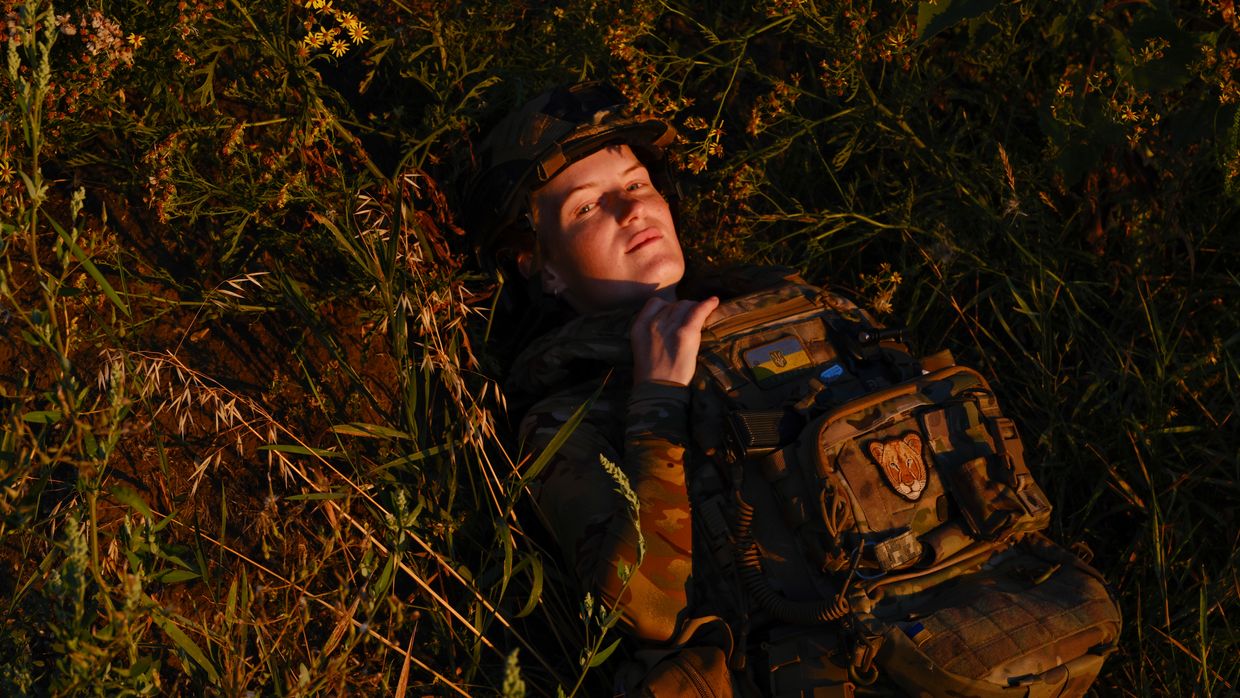‘I’m not fine’ — Intimate scenes of life during war (Photos)

Elena Kalinichenko with her mother and younger brother. (Elena Kalinichenko / The Kyiv Independent)
An abandoned bed that often remains empty until morning as its usual occupants seek shelter during Russian attacks. A backpack with essentials to take along during each air raid. A family hug during a blackout, when a flashlight brings out the invisible on a mother’s face in daylight.
After almost three years in wartime Kyiv, Ukrainian documentary photographer and photojournalist Elena Kalinichenko turned her camera toward the private scenes of daily life as a way of coping with her reality.
Life has become overwhelming since her partner joined the military in the fall of 2024, Kalinichenko says. Russian drone attacks on Kyiv led to frequent blackouts, leaving her to lie alone in the dark.
Kalinichenko says the story her photos tell is “about constant anxiety, panic attacks, and loneliness,” things that have long been familiar to us but that, with war, take on new meaning.
It’s not just Kalinichenko whose mental health took a hit during Russia’s full-scale invasion. According to the World Health Organization (WHO), the most prevalent health issues among Ukrainians are mental health concerns, with 46% of people affected as of October 2024.
Ukrainian authorities responded to stress-induced issues of civilians and a looming PTSD crisis among soldiers with a plan to launch at least 200 mental health centers by 2030.
But for many Ukrainians living through daily news and sights of tragedies, their mental health unravels at the periphery of their attention, leaving them to deal with the fallouts as best they can.
“I’m learning to face the pain instead of hiding from it, searching for emotional strength, and finding ways to cope,” Kalinichenko said.
“We all answer the question 'How are you?’ by saying that we are fine, even though our hearts ache terribly.”
I’m not fine
This photo series is my attempt to confront the chaos of life as a young woman living through war. It’s a personal exploration of trauma and the struggle to hold on to a sense of normal life.

In Ukraine, we always answer, 'I’m fine' when asked, 'how are you?'
But everyone knows it's far from reality,
Yet admitting it often hurts
even more.




To survive an explosion outside, you need at least two walls for protection.
Because of this, my bed and room often remain empty,
And I spend my nights
on the floor
in the corridor.
The two-wall rule is the most important one.


My younger brother takes shelter in the same closet
He’s hidden there since he was 10, even though
He’s outgrowing it now.



He always carries my contact information in his bag,
The piece of paper
carefully sealed in plastic
to protect it from dirt and blood,
just in case.

Yes, I'll smile, indeed, through tears and weeping,
Sing my songs where evil holds its sway,
Hopeless, a steadfast hope forever keeping,
I shall live! You, thoughts of grief, away!
Lesya Ukrainka, 1890












